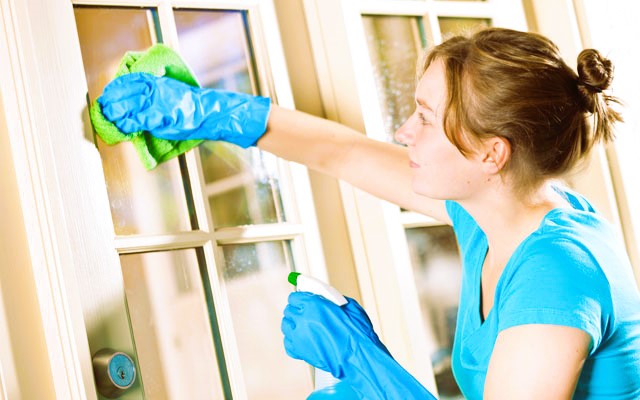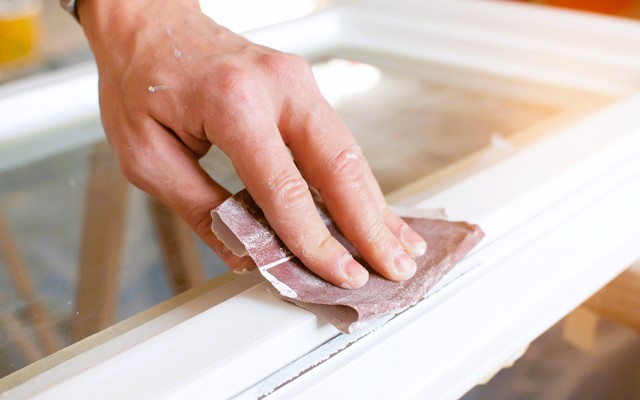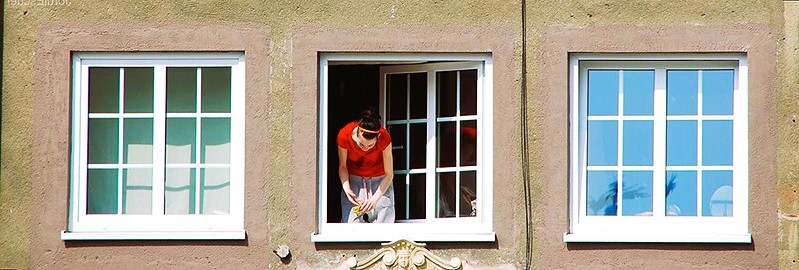uPVC windows, also known as vinyl windows, are a popular choice for homeowners due to their durability, low maintenance, and energy efficiency. However, one issue that some homeowners may encounter is yellowing of the windows over time. In this article, we’ll explore why uPVC windows turn yellow and what can be done to prevent it.
What causes uPVC windows to turn yellow?
The most common cause of yellowing in uPVC windows is exposure to sunlight. Over time, the sun’s UV rays can break down the polymer molecules in the uPVC material, causing it to turn yellow or brown.
Learn about the benefits of window lamination and how it can protect uPVC windows from discoloration in our article on Why is Window Lamination Necessary?
In addition to sunlight, exposure to certain chemicals and pollutants can also cause yellowing in uPVC windows. For example, exposure to cigarette smoke, air pollution, and cleaning products can all contribute to the yellowing of uPVC windows.

How to prevent uPVC windows from turning yellow
While it’s difficult to completely prevent uPVC windows from yellowing over time, there are steps that homeowners can take to minimize the risk of yellowing.
- Choose high-quality uPVC windows
When choosing uPVC windows, it’s important to select high-quality products that are designed to resist yellowing. Look for windows that are made with UV-resistant materials or have a special coating designed to protect against UV rays.
- Clean windows regularly
Regular cleaning of uPVC windows can help to prevent yellowing by removing any buildup of dirt, grime, or pollutants that may contribute to the discoloration. Be sure to use a mild, non-abrasive cleaner and avoid using any harsh chemicals or abrasives that can damage the uPVC material.
- Install window film
Window film can provide an additional layer of protection against UV rays and other external factors that can cause yellowing. There are several types of window film available, including UV protection film and anti-graffiti film, which can help to protect uPVC windows from discoloration.
- Avoid smoking indoors
If you or anyone in your household smokes, it’s important to avoid smoking indoors as much as possible. Cigarette smoke can contribute to the yellowing of uPVC windows, as well as other surfaces and materials in your home.
- Use air purifiers
Air purifiers can help to remove pollutants from the air, reducing the risk of yellowing in uPVC windows and other surfaces in your home. Look for air purifiers that are designed to filter out VOCs (volatile organic compounds) and other pollutants that can cause discoloration.
Conclusion

In conclusion, yellowing of uPVC windows is a common issue that can be caused by exposure to sunlight, chemicals, and pollutants. While it’s difficult to completely prevent yellowing, homeowners can take steps to minimize the risk by choosing high-quality uPVC windows, cleaning them regularly, installing window film, avoiding smoking indoors, and using air purifiers. By taking these steps, you can help to keep your uPVC windows looking their best for years to come.
It’s worth noting that while yellowing of uPVC windows is primarily a cosmetic issue, it can also impact the performance and lifespan of the windows. Over time, the breakdown of the polymer molecules can make the uPVC material more brittle and prone to cracking, which can compromise the structural integrity of the window.
In addition, yellowing can also affect the energy efficiency of the windows by reducing the amount of sunlight that can pass through the glass. This can lead to higher energy costs and reduced comfort levels in your home.
Therefore, it’s important to address yellowing of uPVC windows as soon as possible to prevent any further damage or deterioration. If you notice significant yellowing or discoloration in your uPVC windows, it may be time to consider replacing them with new, high-quality windows that are designed to resist yellowing and maintain their performance and appearance over time.
Overall, while yellowing of uPVC windows may be a common issue, it can be prevented or minimized through proper care and maintenance. By following the tips outlined in this article, you can help to keep your windows looking and performing their best for many years to come.

